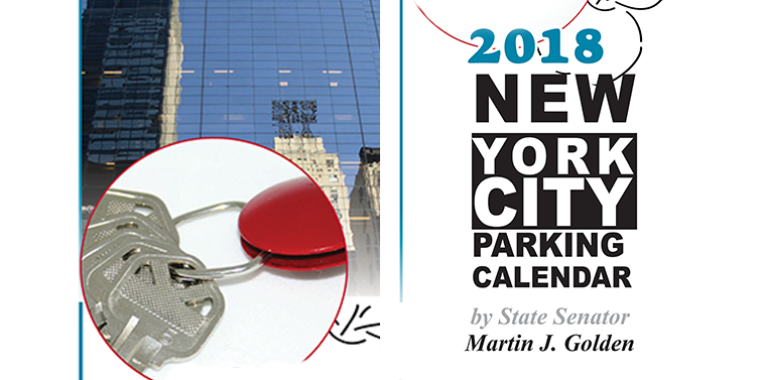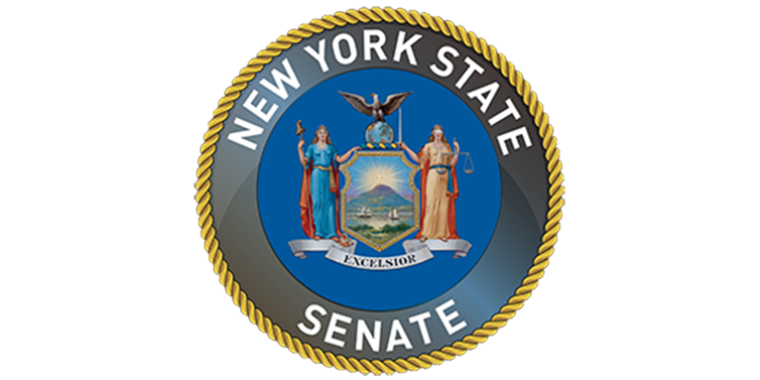
Golden Introduces Most Comprehensive Elder Abuse Legislation In Nation
Albany- State Senator Martin Golden (R-C-I—Brooklyn), Chairman of the Senate Aging Committee, in conjunction with Elder Abuse Awareness Week, today introduced comprehensive legislation to combat elder abuse. The measure includes every aspect of elder abuse by creating new crimes on abuse of seniors, requiring reporting by care professionals and those in a position to know if abuse or exploitation has occurred, establishing a statewide registry for elder abuse as well as new investigatory procedures, and providing grants for research and new initiatives.
"We believe that this bill, the senior anti-violence and enforcement act (SAVE), may be the most comprehensive bill in the country," said Senator Marty Golden, noting that New York is currently one of eight states in the country that currently lacks a requirement for mandatory reporting of elder abuse. "The effect of senior abuse are devastating to the health, quality of life, and sense of security and safety for our senior citizens."
Golden continued, "Elder abuse is a hidden crime, often unreported or underreported due to fear on the part of the victim of losing remaining resources, such as housing, banking accounts, or caregivers. Unfortunately, the options available to seniors for resolving or avoiding abusive situations are often diminished, due to their age, health, or limited resources. This bill seeks to take the necessary steps to combat this abuse."
The legislation includes among its provisions:
Mandatory Reporting of Abuse or Maltreatment: The bill requires mandatory reporting of abuse and mistreatment of seniors, and establishes a broad definition of abuse and mistreatment that includes not only physical abuse, but also financial, sexual, emotional or psychological abuse, neglect, abandonment, financial or material exploitation, and self-neglect. A new statewide central registry for senior abuse and neglect is established in the State Office For The Aging (SOFA).
Mandatory Reporters: It sets a broad range of mandatory reporters, including health care workers, social workers, mental health professionals, persons employed by or associated with a licensed or registered facility which provides care to seniors, peace and police officers, district attorneys and other law enforcement official, as well as bankers, financial consultants, and others. The bill also allows any person to report.
Lead Agency for Senior Abuse and Neglect: The State Office For the Aging is established as the lead agency for senior abuse and neglect, and the designated agencies are established as lead agencies at the local level. Each designated agency is required to establish a Senior Anti-Violence Services (SAVS) unit. The bill also requires that procedures for investigation be established by SOFA, and carried out by the SAVS units, using community teams of local services.
Funding for Services and Research: To provide new funding for enhanced responsibilities, fees are increased on various crimes and driving infractions, to be paid to the credit of the senior Anti-Violence Services Fund, from which the monies are dispersed by SOFA for services and research. The fees include increases in the mandatory surcharge for felony and misdemeanor convictions and for violations (an additional $50), and the sex offender registration fee ($500), and for certain other misdemeanors, felonies and violations.
Criminal Penalties: The bill creates a new article in the penal law in section 11 of the bill, Article 261 – Offenses Against The Elderly And Disabled, and makes numerous changes to the penal law, and adds new sections dealing with abandonment of an elderly or disabled person, endangering the welfare of an elderly or disabled person, and endangering the welfare of an elderly person.
Elder abuse takes many forms, and the courts and criminal justice system see it in many contexts: criminal assault, battery, rape or theft; civil fraud or conversion matters; personal injury actions; guardianship or conservatorship; mental health commitment; special protective proceedings; cases involving health care decisions for an incapacitated patient; and criminal or civil cases regarding institutional care.
Senator Golden concluded, "Establishing an infrastructure to coordinate services to help deal with incidents of abuse is important and a vital step we must take. These measures will go a long way in protecting the elderly of New York State."



